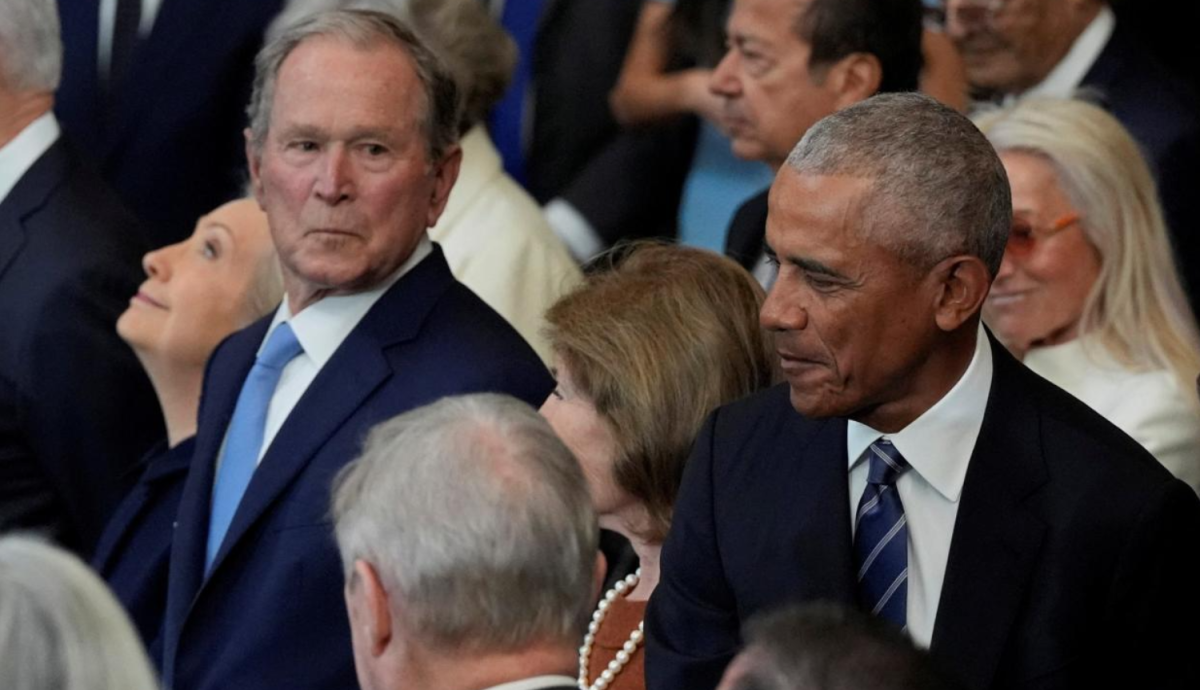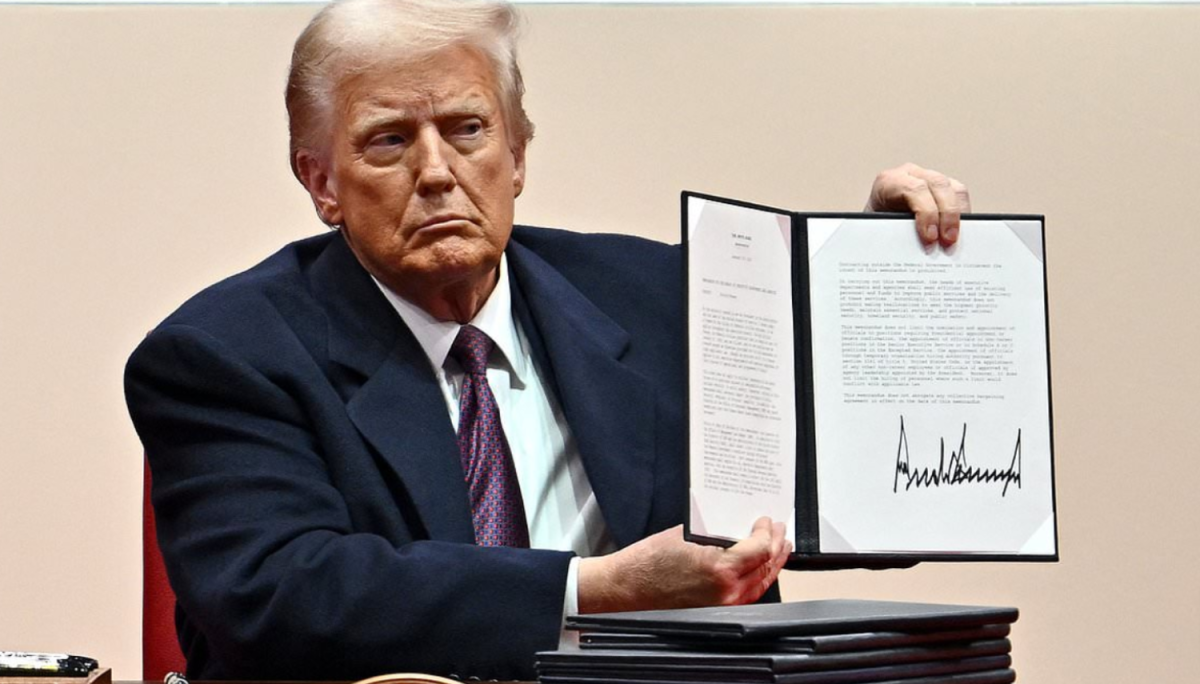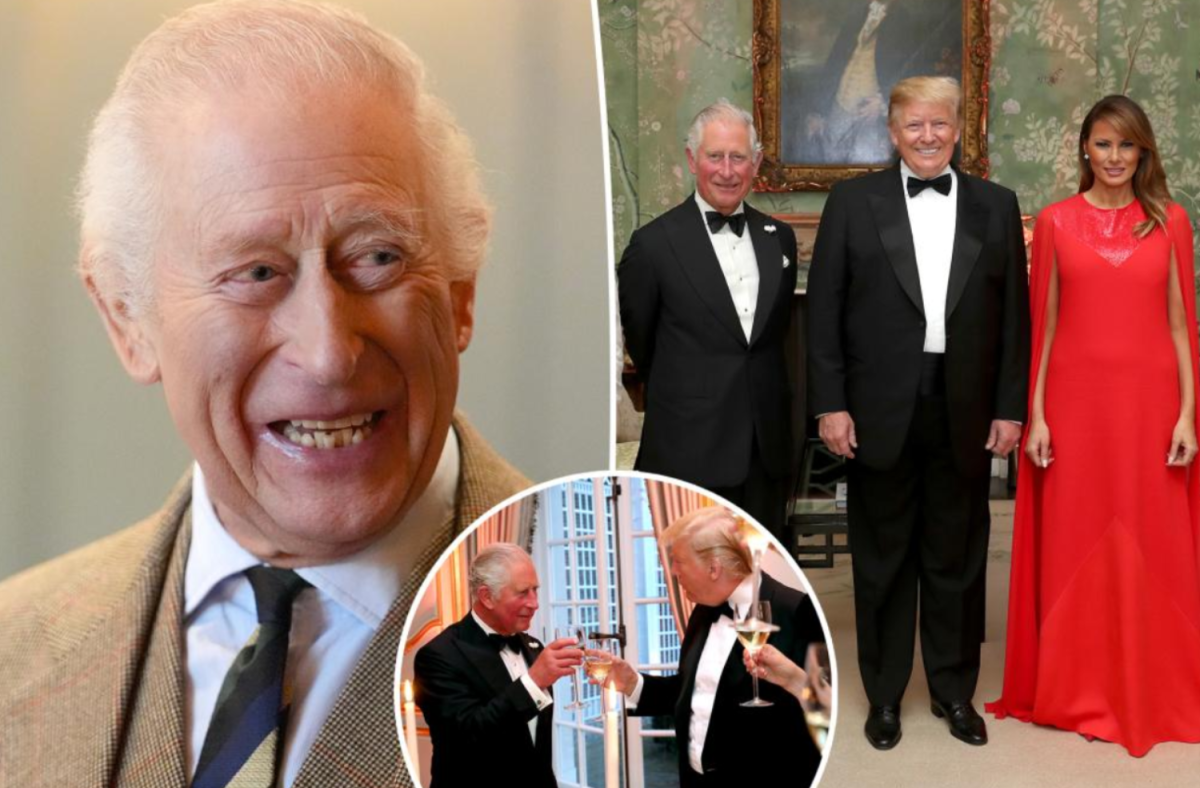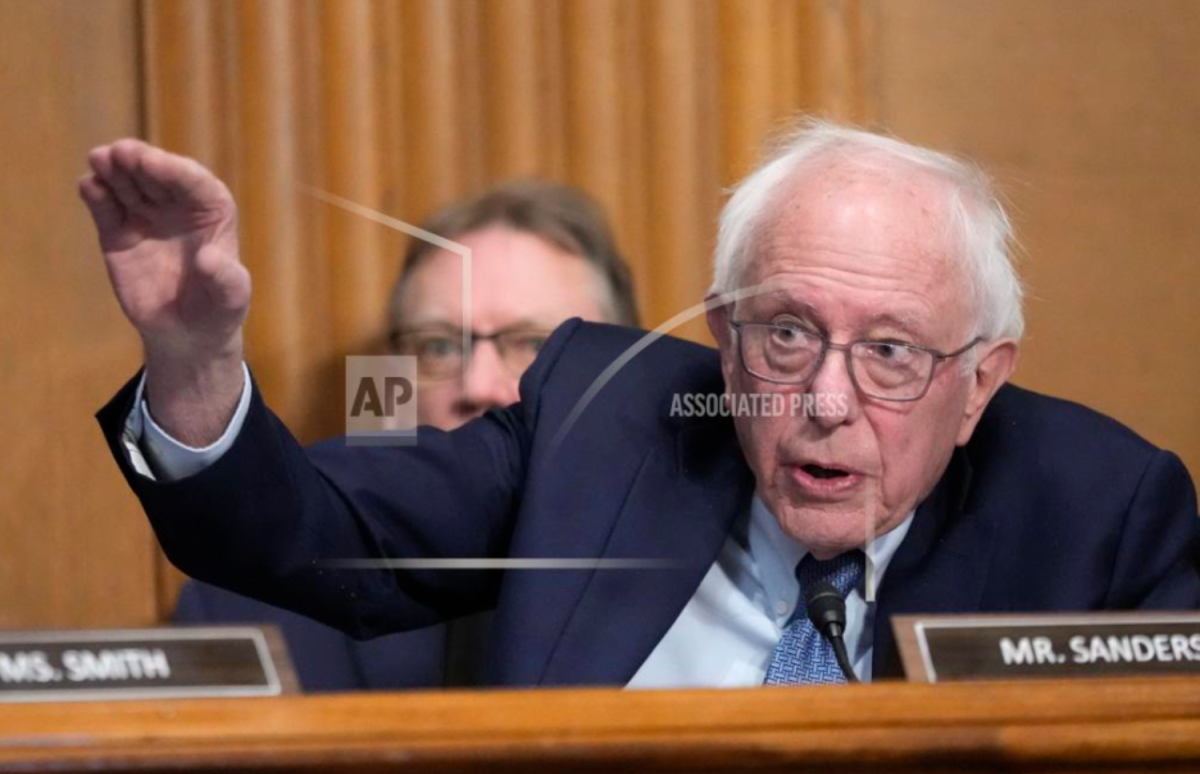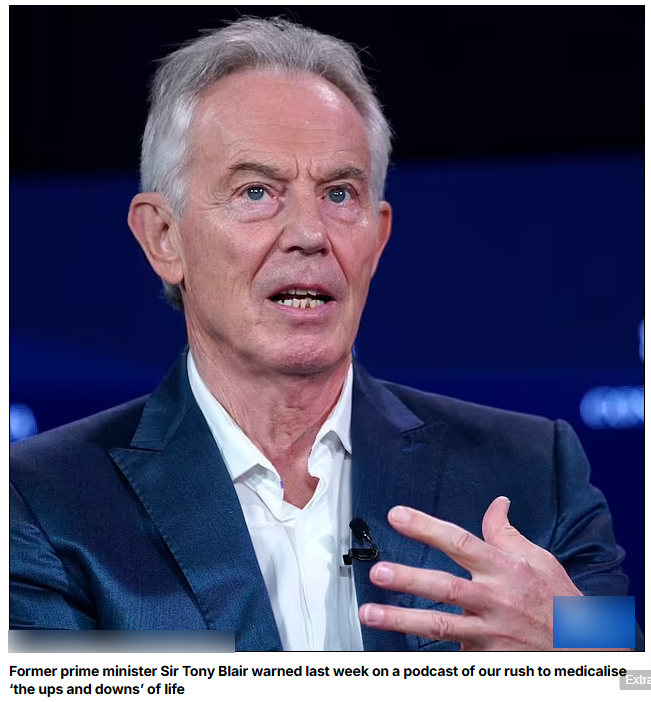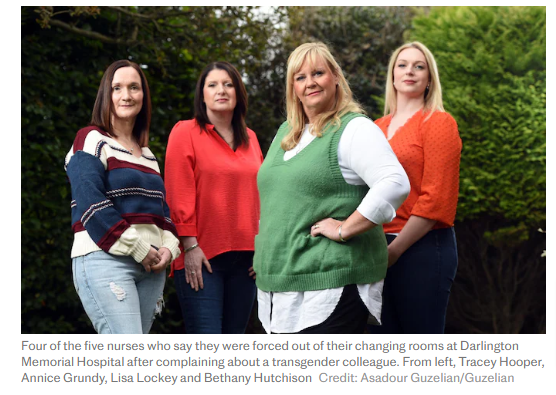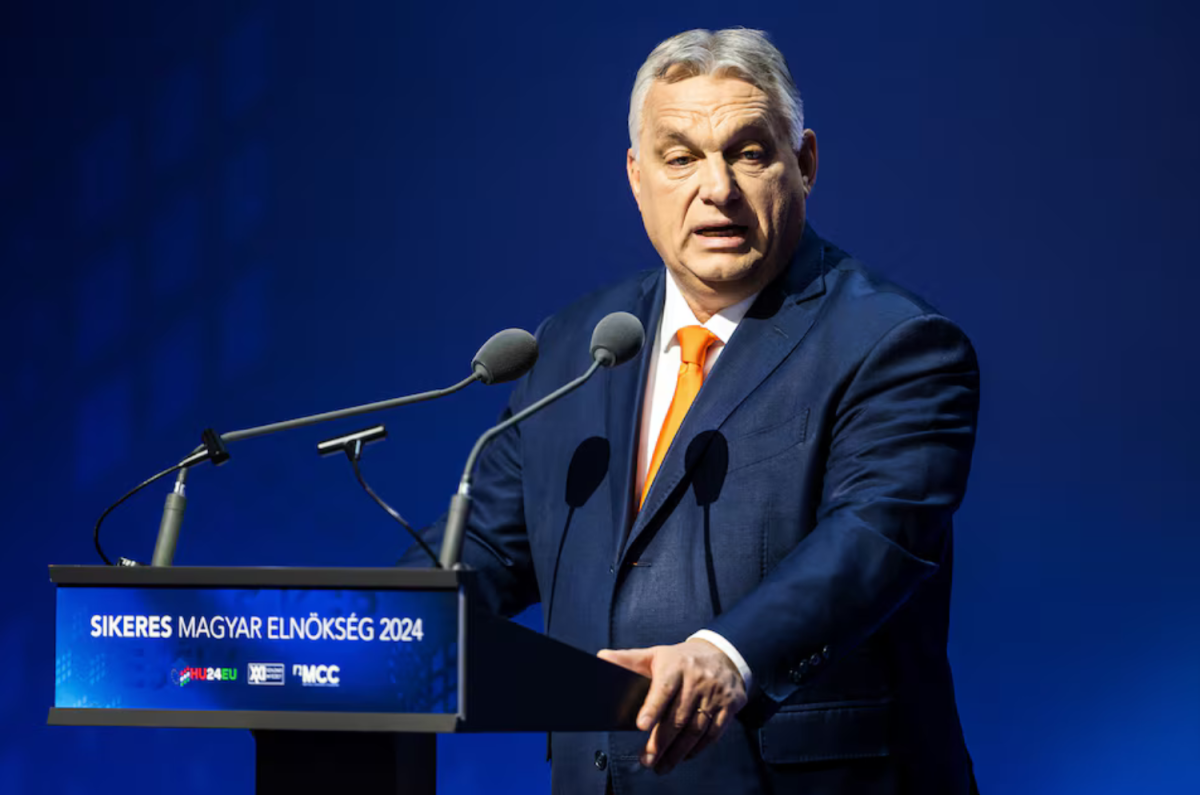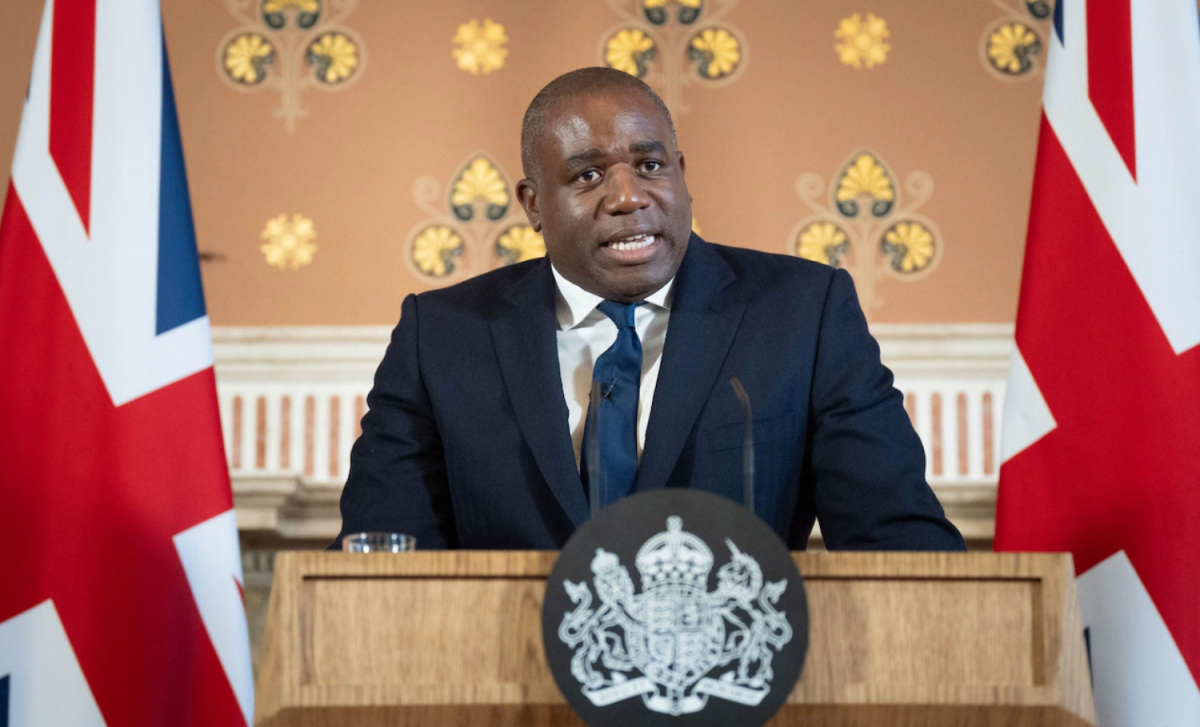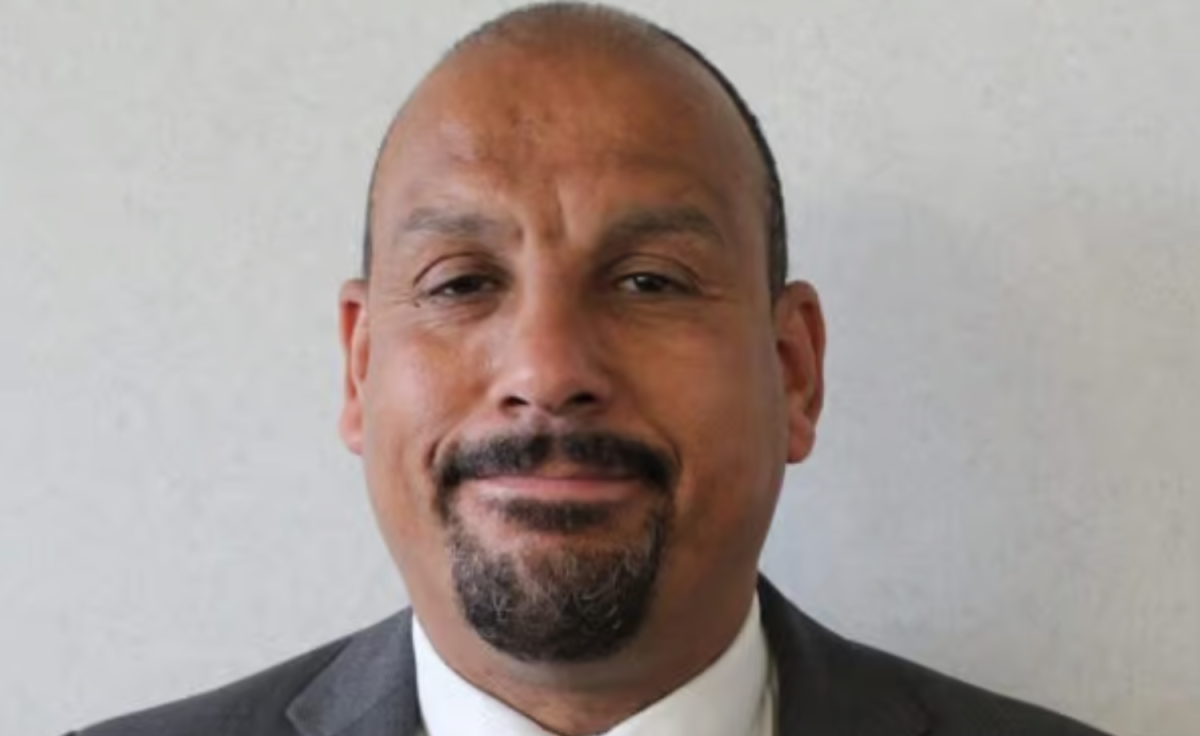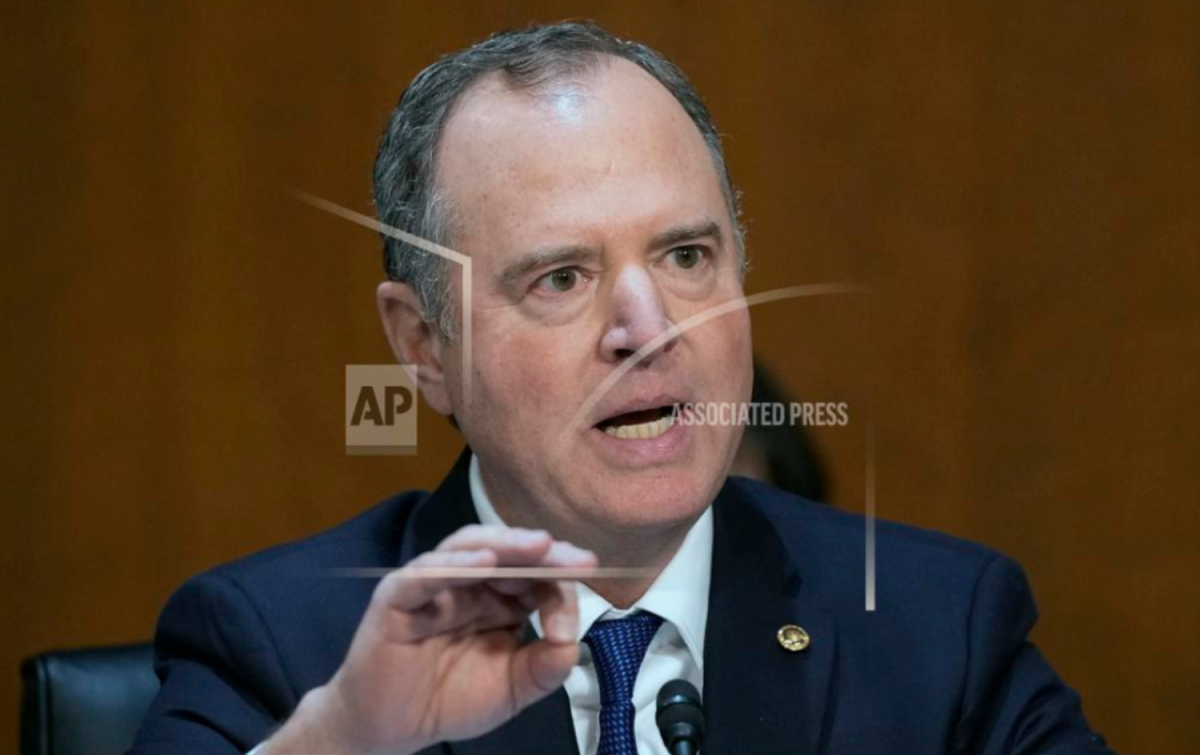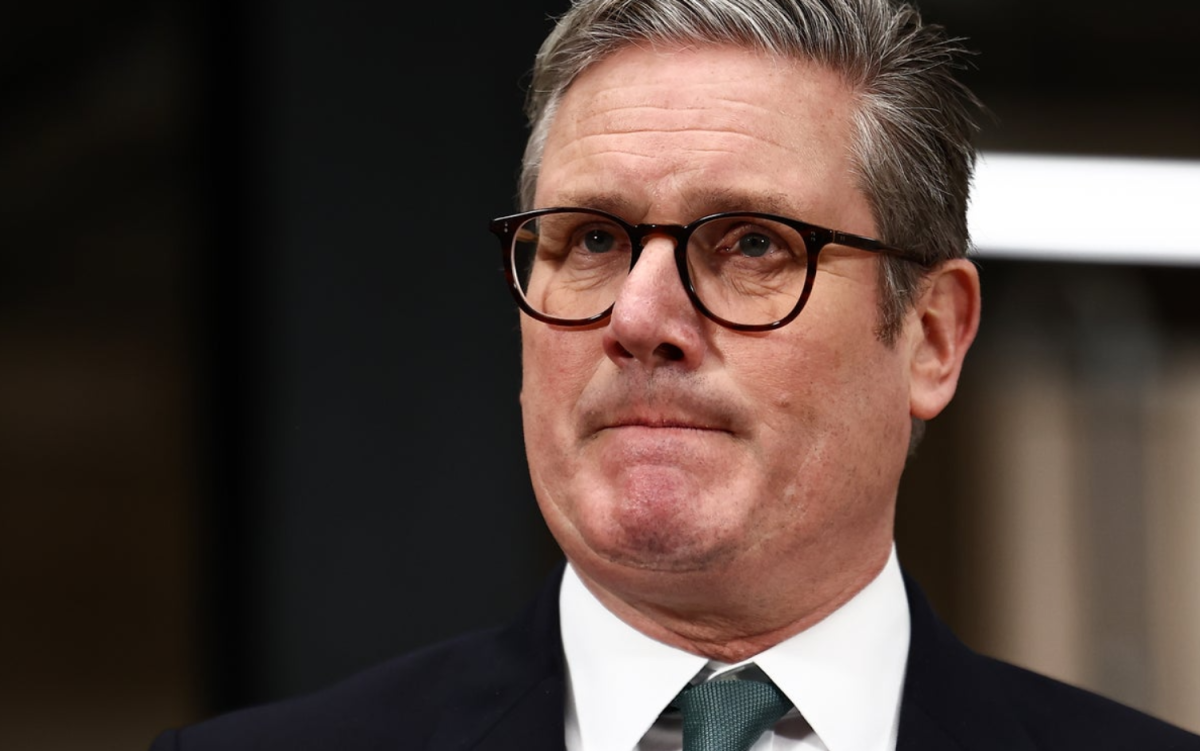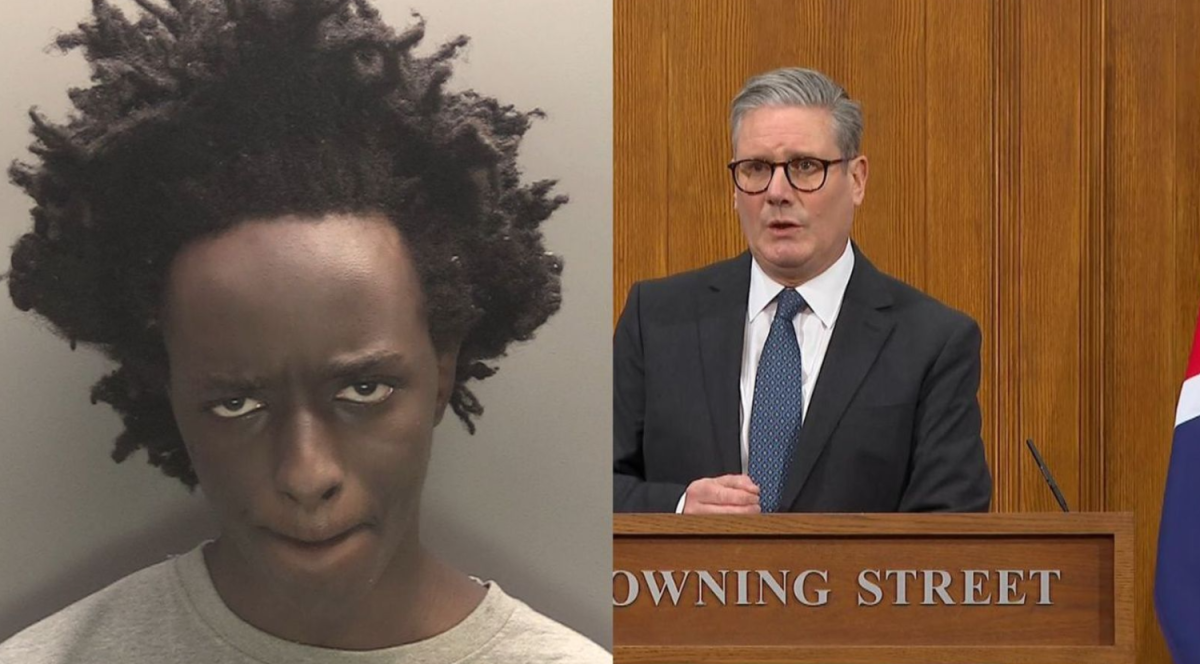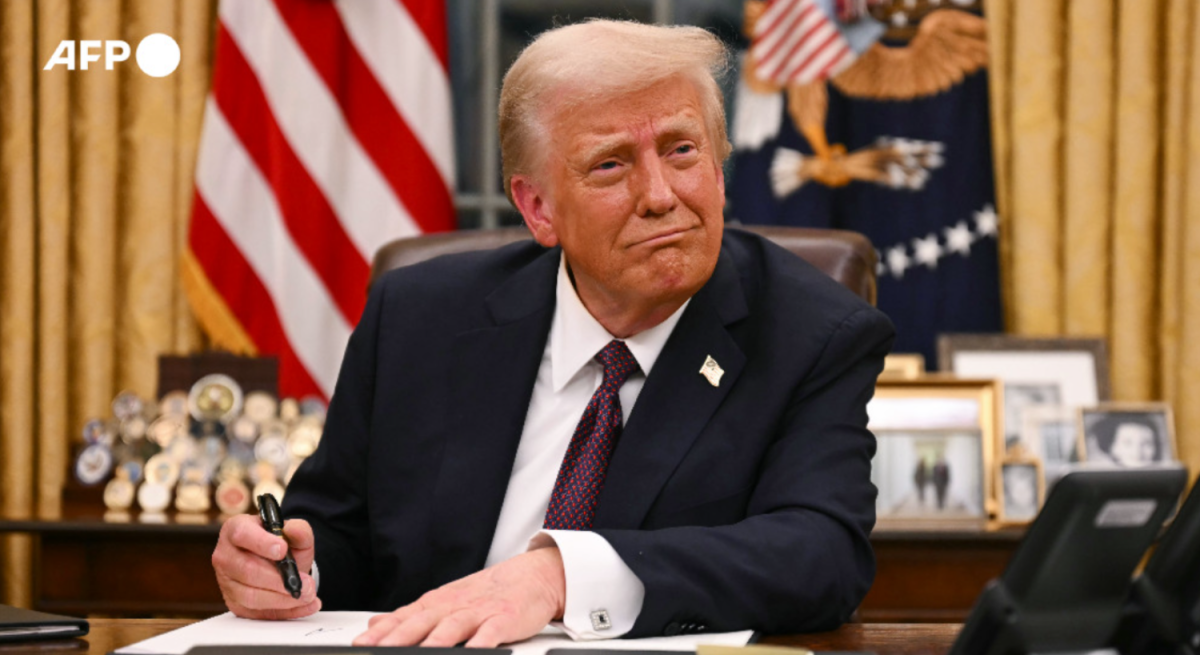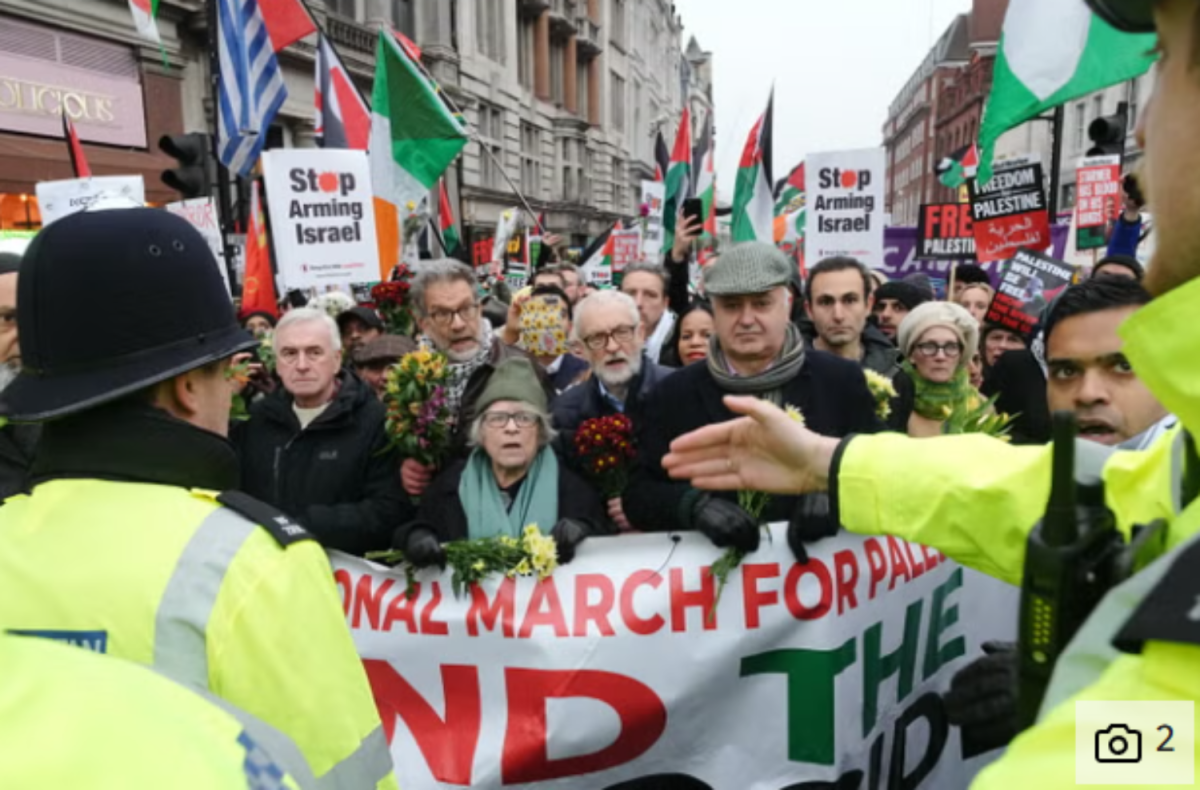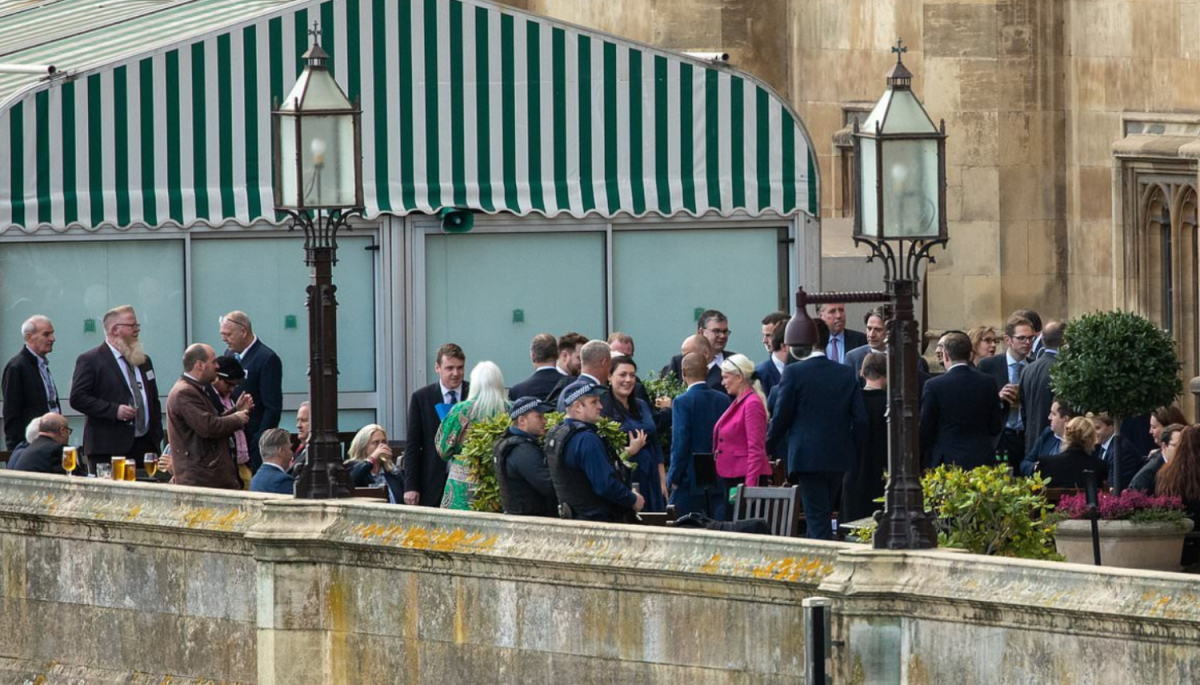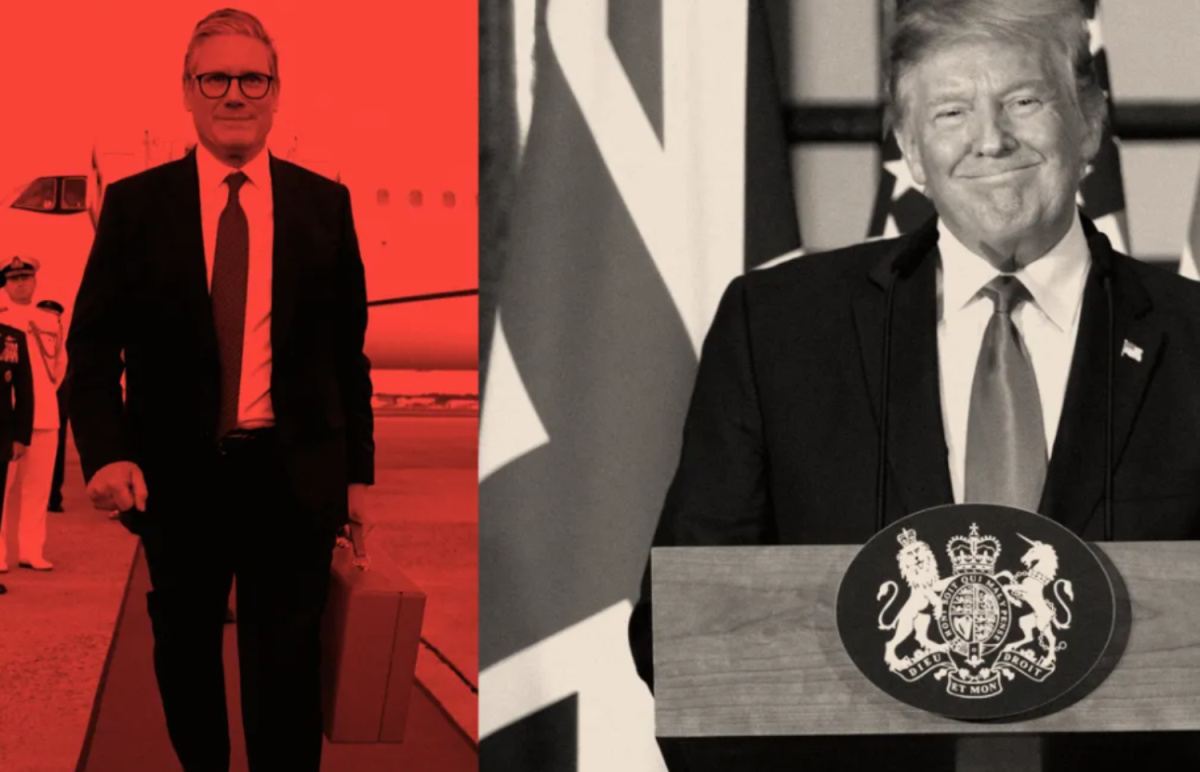-
Posts
10,735 -
Joined
-
Last visited
Content Type
Events
Forums
Downloads
Quizzes
Gallery
Blogs
Everything posted by Social Media
-
A candid moment between former U.S. Presidents Barack Obama and George W. Bush at Donald Trump’s inauguration has sparked widespread intrigue online, with internet sleuths scrambling to decode what was said during their brief exchange inside the Capitol Rotunda. A clip of the two leaders sharing a laugh has gone viral, and according to Jackie Gonzalez, a self-proclaimed expert in lip reading, the interaction may have been more revealing than it appeared. Jackie Gonzalez, who identifies herself as the “human hot mic,” claims to have mastered the art of interpreting conversations from video footage without sound. With over 2.3 million followers across social media, she has built a reputation for decrypting silent exchanges involving high-profile figures, including Taylor Swift, Paul Mescal, and Vice President Kamala Harris. Her assertion about the Obama-Bush exchange has further fueled discussions about the relationship between the former presidents and their reactions to the political shift symbolized by Trump’s inauguration. The viral moment is not the first instance of camaraderie between Mr. Obama and Mr. Bush. Despite their political differences, the two have shared a notably friendly rapport in recent years. Just weeks ago, at former President Jimmy Carter’s funeral, Mr. Bush playfully patted Mr. Obama’s chest in a lighthearted gesture that captured the warmth of their relationship. In the clip from Trump’s inauguration, Mr. Bush was accompanied by his wife, Laura Bush, while Mr. Obama attended without his wife, Michelle Obama. Mrs. Obama, who also skipped Jimmy Carter’s funeral, was later reported to be on vacation in Hawaii at the time. Though lighthearted, the viral exchange has prompted a variety of interpretations and debates about the meaning behind Mr. Obama’s alleged remark and the laughter it evoked from Mr. Bush. As the video continues to circulate online, it highlights not only the enduring curiosity surrounding public figures but also the unexpected moments of levity that can occur even during the most formal occasions. Based on a report by Daily Telegraph 2025-01-23
-
J.K. Rowling has publicly voiced her support for former U.S. President Donald Trump's controversial crackdown on transgender and gender identity rights, aligning herself with his stance that challenges what she calls the Left’s "calamity" over embracing "gender identity ideology." The renowned author of the Harry Potter series has become a polarizing figure in recent years for her outspoken views on gender issues, and her latest remarks have only intensified the debate. Trump, following his inauguration and return to the White House, signed several executive orders on his first day back in office, making waves both domestically and internationally. Among the orders was a directive to officially recognize only two sexes—male and female—as "immutable biological classifications." He also instructed federal agencies to use the term "sex" in place of "gender" and mandated that identification documents, including passports and visas, reflect an individual’s biological sex rather than their gender identity. Additionally, Trump’s administration ordered an end to federal funding for programs promoting what he termed "gender ideology." While Trump’s actions drew fierce criticism from LGBTQ+ advocacy groups and activists, Rowling emerged as an unexpected supporter. In a post on X, formerly known as Twitter, the author wrote: "A noisy part of the Left still refuses to step outside their sex-is-a-social-construct bubble and acknowledge that their embrace of gender identity ideology has been a calamity. They were warned the right was capitalizing on their betrayal of women and girls. They didn't listen." Her comments reflect her ongoing criticism of what she perceives as the undermining of women’s rights by progressive gender policies. Rowling’s views have sparked significant backlash in the past, but she remains a prominent voice in the cultural debate over gender identity and biological sex. Trump’s return to the White House and his swift policy moves have reignited tensions over LGBTQ+ rights in the United States. Kelley Robinson, president of the Human Rights Campaign, issued a defiant statement in response to the orders, saying: "We refuse to back down or be intimidated. We are not going anywhere, and we will fight back against these harmful provisions with everything we've got." The divide over gender identity policies has increasingly become a flashpoint in global politics, with activists on both sides mobilizing in response to the growing prominence of these issues. For Rowling, Trump’s actions appear to validate her warnings about the consequences of progressive policies, though critics argue her stance aligns her with a movement that seeks to erode hard-won rights for transgender individuals. As the backlash to Trump’s orders grows, so too does the debate over the future of gender identity rights. For now, Rowling remains at the center of the controversy, using her platform to challenge what she views as the Left’s failure to protect women and girls in the face of evolving gender norms. Based on a report by Daily Mail 2025-01-23
- 104 replies
-
- 11
-

-

-

-

-
King Charles III has personally congratulated President Donald Trump on his inauguration, highlighting the enduring bond between the United Kingdom and the United States. The 76-year-old monarch sent a handwritten letter to Trump, marking the beginning of his second term as the 47th president of the United States. Buckingham Palace confirmed that the private message was delivered to Trump on Monday. In his letter, King Charles reflected on the "enduring special relationship between the UK and US." Although no state visit has been scheduled yet, it's understood that the possibility remains open for later in the year. Typically, invitations for foreign political figures and monarchs to visit the UK are extended based on the advice of the Foreign and Commonwealth Office, with the ultimate decision resting with the UK government. Given Trump’s strong ties to the British royal family, a visit to the UK could be on the horizon. President Trump, now 78, has expressed admiration for the British royals on numerous occasions. During his first term, he met the late Queen Elizabeth II and described having "automatic chemistry" with her. He also spoke warmly of King Charles, calling him a “really wonderful guy.” Trump’s affinity for the British monarchy was further demonstrated during his recent meeting with Prince William at the newly reopened Notre Dame Cathedral in Paris. Looking ahead, there’s speculation that King Charles and Queen Camilla might receive an invitation to Washington, DC, to attend the 250th anniversary of the signing of the US Declaration of Independence next year. Such an event would further symbolize the strong ties between the two nations. Meanwhile, UK Prime Minister Keir Starmer also extended his congratulations to Trump. In a statement released Monday, Starmer said, “On behalf of the United Kingdom, I send my warmest congratulations to President @realDonaldTrump on his inauguration as the forty-seventh President of the United States.” He further emphasized the importance of the UK-US bond, stating, “The special relationship between the UK and the US will continue to flourish for years to come.” This warm exchange of congratulations underscores the continued diplomatic ties and mutual respect between the UK and US leadership, setting a positive tone for future collaborations. Based on a report by NYP 2025-01-23
-
Russia is rearming at an unexpectedly swift pace, raising alarms about a possible attack on NATO, according to Germany’s military chief overseeing Ukrainian affairs. Major General Christian Freuding has sounded the alarm, revealing that Russia has replenished its arsenal of missiles and tanks lost during its invasion of Ukraine, signaling a rapid resurgence in military capability. Speaking to *Die Welt* newspaper on the eve of Donald Trump’s inauguration as U.S. president, Maj Gen Freuding highlighted that Russia’s military is not only compensating for its substantial losses in personnel and equipment but is also making significant strides in rearming. “The Russian armed forces are not just able to compensate for their enormous personnel and material losses… they are successfully rearming,” he asserted. The German military officer emphasized that President Vladimir Putin has realigned the Russian economy to sustain his war efforts. Moreover, Russia has secured additional supplies from allies such as Iran and North Korea, aiding in the replenishment of essential military resources, including tanks, missiles, and drones. While it remains uncertain whether Putin intends to directly target NATO, Freuding warned that the conditions for such an assault are being meticulously prepared. “Production is growing, the supplies in the depots are growing,” he noted. This revelation comes at a critical juncture for Germany, which is embroiled in a political debate over a proposed £2.5 billion aid package for Ukraine. Chancellor Olaf Scholz has stipulated that any support for Ukraine would be contingent upon relaxing stringent national borrowing rules. As this debate unfolds, the situation on the ground in Ukraine remains tense, with Russian forces encircling Pokrovsk, a strategic town in the south Donetsk region. The town of Pokrovsk, previously home to 60,000 residents, is a crucial hub for Ukraine’s military logistics, serving as a center for railway and road networks. It also hosts a vital coking coal mine, integral to Ukraine’s steel industry, the country’s second-largest export sector. Reports indicate that operations at the mine have ceased, with workers evacuated due to the advancing Russian forces. “They have all stopped working now,” confirmed a source cited by Reuters, underscoring the gravity of the situation. Meanwhile, Russian military bloggers have celebrated their advances, suggesting that these movements are reshaping international narratives. The capture of nearby Velyka Novosilka, while symbolically significant, further illustrates the extent of Russia’s territorial gains since mid-2024. In the broader geopolitical context, former President Donald Trump has expressed a desire to broker a peace deal to conclude the war in Ukraine. However, analysts believe that Putin is pushing for territorial gains to strengthen Russia's negotiating position. He has reportedly ordered his generals to intensify attacks on Ukrainian positions using "swarm infantry tactics." Despite the war-weariness among Ukrainians and growing public support for a peace deal, advisers to Ukrainian President Volodymyr Zelensky have cautioned against early negotiations with Putin, labeling it a potential “catastrophic mistake.” The unfolding scenario presents a complex challenge, as international leaders grapple with strategies to address the escalating conflict while maintaining regional stability. Based on a report by Daily Telegraph 2025-01-23
-
Sen. Bernie Sanders (I-Vt.) has urged Americans to avoid equating the pardons issued by President Donald Trump with those of former President Joe Biden, emphasizing their significant differences. During an appearance on CNN’s *The Source* on Tuesday evening, Sanders discussed the wave of executive actions taken by Trump, including pardons for individuals involved in the January 6 Capitol riot, and how some have drawn comparisons to the pardons issued by Biden before he left office. Host Kaitlan Collins questioned Sanders on the matter, particularly highlighting Biden’s controversial decision to pardon family members. “What I think is that he was worried that, given all of Trump’s rhetoric, that [Biden] was going to go after his family and close associates,” Sanders explained. “All right, that’s a concern, but don’t equate the two.” Sanders acknowledged that there is room for debate about whether Biden’s decision to preemptively pardon his family was right or wrong. However, he insisted that the move bore no resemblance to Trump’s actions. “It has nothing to do with what Trump did today,” Sanders stated firmly. Biden’s last-minute pardons of family members marked an unprecedented use of executive power, motivated by concerns over Trump’s threats of retribution during a potential second administration. The decision caused division among Democrats, with some supporting the pardons and others expressing disapproval. After assuming office, Trump acted quickly to pardon almost all the rioters who stormed the Capitol four years ago, a move that also faced intense scrutiny. Sanders criticized Trump’s decision, particularly given his public support for law enforcement. “To tell the entire world that we’re going to pardon people who attacked and hurt police officers is telling,” Sanders remarked. “I think that is a horrible message, and I strongly disagree with his pardoning of those insurrectionists.” He pointed out that he knows of no one in Biden’s family who attempted to overthrow the U.S. government. Sanders further condemned Trump’s actions, saying, “What Trump is saying to the world is that it is okay for you to attack police officers when you have a mind to do that. And I think that is an outrageous message to send to the world.” Sanders’ remarks underscore his deep concern about the implications of Trump’s pardons, contrasting them sharply with Biden’s controversial yet fundamentally different actions. Based on a report by The Hill 2025-01-23
-

3 Female Hostages finally released by Hamas Terrorists in Gaza
Social Media replied to Social Media's topic in World News
UPDATE Hamas says 4 female hostages to be released on Saturday Hamas official Taher al-Nunu tells AFP that four Israeli women hostages will be freed in return for Palestinian prisoners on Saturday, in the second such release under a ceasefire deal. Nunu says Hamas would release “four Israeli female detainees in exchange” for a second group of Palestinian prisoners. He does not name them. There are seven female hostages remaining from the original list of 33 to be released in the first phase of the hostage ceasefire deal: Arbel Yehud, 29; Shiri Silberman Bibas, 33; Liri Albag, 19; Karina Ariev, 20; Agam Berger, 21; Danielle Gilboa, 20 and Naama Levy, 20. AFP & TOI -
Britain faces a mental health crisis, but not in the way most people imagine. While genuine mental health conditions remain a pressing issue, a growing problem lies in the increasing number of individuals self-diagnosing with conditions such as depression, anxiety, OCD, PTSD, or neurodevelopmental disorders like autism and ADHD. This trend is diverting precious resources away from those truly in need. “The golden age of openness about mental health has turned into something else entirely,” notes Dame Clare Gerada, former president of the Royal College of General Practitioners. She warns that Britain has developed a tendency to label normal life challenges as mental health conditions. "People would rather have a label than consider why their life might be challenging or where it could have gone wrong," she adds. This shift has created a situation where mental illness is no longer stigmatized but, alarmingly, is often worn as a badge of honour. As Dr. Max, a consultant psychiatrist, explains, "It’s starting to feel like mental illness has become something people cling to as a way of explaining the normal difficulties life throws at us.” Former Prime Minister Sir Tony Blair recently weighed in on the issue, expressing concerns about the rush to medicalize life’s natural ups and downs. His words, echoed by mental health professionals, highlight the danger of self-diagnosis and the pressure on doctors to validate these unfounded concerns. The impact of this phenomenon on the healthcare system is profound. As Dr. Max shares, psychiatrists increasingly spend their time explaining to patients that they do not have mental illnesses. "I thought no one wanted to be mentally ill," one psychiatrist remarked at a recent meeting. "It turns out everyone does." This problem is compounded by a growing resistance from patients when told they are mentally well. “When I tell someone they don’t have depression, they often look at me confused and reply, ‘But I’m not happy,’” says Dr. Max. The expectation of constant happiness, as if life were meant to be a perpetual state of euphoria, has skewed perceptions of what constitutes mental illness. In some cases, doctors succumb to patient demands, providing a diagnosis to placate them. This can lead to unintended consequences, such as individuals being signed off work for dubious reasons, only to develop genuine mental health issues through prolonged inactivity, isolation, and substance use. “Some people end up at home, watching TV, playing video games, and smoking cannabis. And guess what? They eventually do develop real mental health problems,” Dr. Max laments. The rise of misdiagnosis and misplaced self-diagnosis risks trivializing the struggles of those with legitimate mental illnesses. It also perpetuates the misconception that life should always be positive and devoid of hardship. As Dr. Max emphasizes, “Life is rife with frustration, disappointment, and uncertainties. These are not illnesses; they are part of the human experience.” While the destigmatization of mental health discussions is a positive step, it’s crucial to strike a balance. The narrative must shift to emphasize resilience and coping mechanisms rather than labeling normal emotional experiences as disorders. "Yes, let’s keep talking," Dr. Max concludes, "but let’s expand the conversation to reflect the realities of life and the tools we need to navigate it. We owe it to those truly in need of mental health care to ensure they are not overlooked in a system overwhelmed by the ‘worried well.’” The solution lies not in silencing the conversation but in refining it—focusing on building emotional resilience and differentiating between mental illness and the challenges inherent to life. Only then can we ensure that help reaches those who need it most. Based on a report by Daily Mail 2025-01-22
-
A transgender nurse has been accused of intimidating female colleagues who launched a sexual harassment case against their employer after being required to share a changing room with her. The allegations were brought to light during a preliminary hearing at Newcastle Employment Tribunal. The nurse, known as Rose, was assigned male at birth but now lives as a woman. Despite this, it was noted during the hearing that Rose does not possess a gender recognition certificate, which legally defines her as male under current UK law. Female nurses working for the County Durham and Darlington NHS Foundation Trust have claimed they felt "intimidated" and "stared at" by Rose following the commencement of their legal action. Bruno Quintavalle, representing the nurses, argued that Rose had engaged in deliberate and confrontational behavior at the hospital since the legal proceedings began. He stated: “It is the claimants’ position … that far from being reduced to a state of fear and concern about his psychological or physical integrity, Rose has responded to the initiation of proceedings by trying to intimidate the nurses. By engaging in confrontational behavior in the hospital in situations where he would not usually be expected to be. This suggests that far from being in a state of shock, Rose is fully on top of things.” Bethany Hutchison, president of the Darlington Nurses Union, supported these claims in a witness statement, saying that Rose’s actions had made the nurses feel increasingly uncomfortable. Hutchison noted that Rose, who works as a theatre nurse, had begun frequenting the day surgery ward, where the complainants worked, much more often than before. “Rose’s frequent visits show there is no hostility or intimidation against Rose,” Hutchison stated. “Rather, it is Rose who is apparently seeking to intimidate us with those unnecessary visits.” Another nurse, Karen Danson, provided a statement detailing her own experiences upon returning to work after a period of medical leave. “Since I returned to work, I have only seen Rose a couple times in the canteen,” Danson said. “On those occasions, Rose is always staring and trying to intimidate us all.” Simon Cheetham KC, representing the NHS trust, sought an order to prevent Rose’s surname from being reported, citing privacy rights under the European Convention on Human Rights and potential risks of harm. Cheetham did not challenge the nurses’ allegations of intimidation during the hearing. However, Mr. Quintavalle opposed the application, arguing that granting anonymity would hinder the claimants’ ability to share their experiences. Sharon Langridge, the employment judge presiding over the preliminary hearing, has reserved her decision on the application for anonymity. She confirmed that her written ruling would be issued within the next couple of weeks. The tribunal is set to begin on June 16 and conclude on July 4, during which the claims of sexual discrimination and harassment against the NHS trust will be fully examined. Based on a report by Daily Telegraph 2025-01-22
-
Hungarian Prime Minister Viktor Orban has suggested that Donald Trump's presidency could catalyze a sweeping right-wing political transformation across Europe. Speaking at a conference on Monday, Orban expressed his optimism about the influence of a new U.S. administration on European politics and declared his intention to spearhead what he described as an offensive to "occupy Brussels." "The Sun will shine differently in Brussels," Orban proclaimed, emphasizing the potential for significant political change. He referenced the arrival of a "new President in the US" and the presence of a "large faction of Patriots in Brussels" as key factors that would energize the movement. "So the great attack can start. Hereby I launch the second phase of the offensive that aims to occupy Brussels," Orban stated. The Hungarian leader has been a vocal supporter of Donald Trump and a frequent critic of the European Union, often opposing its policies on issues such as migration and governance. Orban's rhetoric reflects his broader ambition to bolster nationalist and right-wing political forces within Europe, challenging the influence of EU institutions in Brussels. Orban’s remarks come amid growing divisions within the EU, where debates over sovereignty, immigration, and cultural identity have fueled the rise of nationalist movements in several member states. His comments suggest a renewed push to align with like-minded political actors and amplify their influence on the European stage. While Orban's statements are likely to resonate with his supporters, they may also intensify tensions between Hungary and EU leaders, who have often criticized his government for undermining democratic norms and the rule of law. The Hungarian Prime Minister's bold declaration underscores his vision of a politically redefined Europe, one shaped by the resurgence of right-wing ideals and resistance to what he views as the overreach of Brussels. Based on a report by Reuters 2025-01-22
-
In a recent interview on CBS' "Face the Nation," President-elect Donald Trump's incoming national security adviser, Mike Waltz, made a definitive statement regarding the situation in Gaza. He emphasized the unwavering stance of the Trump administration towards Hamas and their governance in the region. "Hamas will never govern Gaza. That is completely unacceptable," Waltz declared, signaling a strong U.S. support for Israel's actions should Hamas violate the ceasefire-for-hostages agreement. Waltz underscored that the Trump administration has conveyed this position clearly to Israeli Prime Minister Benjamin Netanyahu. "I want the Israeli people to hear me loud and clear," he asserted. "If Hamas reneges on this deal and Hamas backs out, moves the goalpost, what have you, we will support Israel in doing what it has to do." His remarks reflect a firm commitment to Israel's security and a zero-tolerance policy for any deviation by Hamas from the agreed terms. Moreover, Waltz expressed optimism about the Trump administration's potential to further the Abraham Accords, particularly by facilitating a normalization agreement between Israel and Saudi Arabia. This goal aligns with the broader Middle East peace strategy that the administration seeks to advance. Based on a report by Reuters 2025-01-22
-
In a surprising turn, Foreign Secretary David Lammy has offered high praise for President-elect Donald Trump, a stark contrast to his previous harsh criticisms. Lammy, who once referred to Trump as a “woman-hating, neo-Nazi sympathising sociopath” in 2018, now describes him as “incredibly graceful,” “generous,” and “very, very friendly.” Lammy’s shift in tone comes as the UK government seeks to strengthen ties with the incoming US administration. Sir Keir Starmer is expected to visit Washington, D.C., to meet with Trump in the coming weeks, with efforts to secure a new trade deal high on the agenda. A “mini-Cabinet” of senior ministers has been established to strategize ways to persuade Trump to reach an agreement favorable to the UK. When questioned on BBC Radio 4’s Today programme about his altered perspective on Trump, Lammy emphasized a pragmatic approach. “The approach has got to be progressive realism,” he said. “You meet the world as it is, not as you would wish it to be.” Lammy acknowledged the broad support Trump enjoys globally, noting a recent survey indicating that 70 percent of the world welcomes Trump’s return to power. He pointed out the increase in support for Trump among various demographics in the US, including African American and Latino communities, and younger voters. “We have to reckon with that truth,” Lammy concluded, signaling a recognition of Trump’s enduring appeal. The UK government is hopeful that past criticisms from senior Labour figures won’t hinder the ongoing efforts to foster a strong UK-US relationship under Trump’s leadership. Based on a report by Daily Telegraph 2025-01-22
-
The trial of Ricky Jones, a suspended Labour councillor facing accusations of inciting violence during last summer’s riots, has been postponed until August. Jones, 57, is charged with encouraging violent disorder following a speech delivered to a crowd in Walthamstow on August 7 last year. His words, captured on video, gained widespread attention online as he spoke out against "disgusting Nazi fascists," declaring, "we need to cut their throats and get rid of them." Originally, Jones was scheduled to stand trial this week at Snaresbrook Crown Court. However, a decision made last week has now deferred the trial until August 11. This delay follows Jones’ suspension from the Labour Party after his participation in the anti-fascist protest on Hoe Street, Walthamstow, where the controversial speech was made. In court last September, Jones pleaded not guilty to the charge of encouraging violent disorder. Initially remanded in custody, he has since been released on bail. Chief Crown Prosecutor Jaswant Narwal of CPS London North stated at the time the charges were announced, "Jones was filmed addressing a crowd in Walthamstow on Wednesday 7 August during which he appeared to make remarks and a gesture to encourage others to act violently towards far-right protestors." Narwal emphasized the importance of preserving the integrity of the judicial process, reminding the public, "We remind all concerned that criminal proceedings are active and that he has the right to a fair trial. It is extremely important that there should be no reporting, commentary, or sharing of information online which could in any way prejudice these proceedings." As the new trial date approaches, the case remains a focal point for public and media attention, highlighting the tensions surrounding the events of last summer and the ongoing repercussions for those involved. Based on a report by the Standard 2025-01-22
-
A daycare center has been firebombed and scrawled with graffiti reading “f— the Jews” in the latest antisemitic attack in Sydney, Australia. Acting New South Wales Police Commissioner Peter Thurtell announced that Strike Force Pearl, a unit established to investigate antisemitic crimes in Sydney, will receive additional resources immediately. “We already have significant resources, but incidents like this highlight the need for us to continue bolstering our efforts to identify, arrest, and bring these offenders to justice,” Thurtell stated. He further condemned the perpetrators, asserting, "These are criminals who aim to disrupt our society, and we will ensure they face the consequences." New South Wales Premier Chris Minns echoed these sentiments, emphasizing that both state and federal resources are being deployed to combat the rise in antisemitic crime. “The surge in antisemitic attacks is deeply troubling and remains a primary concern for our state,” Minns said. Despite acknowledging the challenges, Minns reassured the public that progress is being made, noting that nine suspects have been arrested and charged in connection with three recent attacks in Sydney, all of whom remain in custody. To enhance community safety, New South Wales Police also launched Operation Shelter following the increase in tensions triggered by pro-Palestinian protests in Sydney. According to Thurtell, over 180 individuals have been arrested under Operation Shelter, with 40 charged specifically with antisemitic offenses. Australia, home to approximately 117,000 Jewish residents—about 0.46% of its population—has the highest number of Holocaust survivors per capita after Israel. This historical context underscores the urgency and significance of addressing the current wave of antisemitic crimes to protect its Jewish community. Based on a report by WP 2025-01-22
-
Sen. Adam Schiff (D-Calif.) has sharply criticized President Donald Trump for issuing broad pardons to nearly all individuals charged in connection with the January 6, 2021, attack on the U.S. Capitol. In an interview on MSNBC’s "Inside with Jen Psaki," Schiff described the move as "obscene" and "a grotesque display" of presidential power. “It’s obscene. It’s a grotesque display of his new power as President to pardon these 15- or 1600 people, which I have to imagine includes people that committed violent assaults on law enforcement,” Schiff said. “It really is a terrible way to begin, but not a surprising way to begin the new administration.” On Monday night, Trump announced that he had granted approximately 1,500 “full, complete, and unconditional pardons” to individuals charged for their roles in the Capitol riot. A total of 1,583 people have faced charges related to the attack. Trump justified the sweeping pardons while signing orders in the Oval Office, stating, “What they’ve done to these people is outrageous.” Among those granted clemency were members of the Proud Boys and Oath Keepers, who had been charged with conspiring to disrupt the peaceful transfer of power following the 2020 presidential election. The sentences of many were commuted to time served. Notably, Enrique Tarrio, the former national chairman of the Proud Boys, who was serving a 22-year prison term — the longest sentence handed down in connection with the attack — received a full pardon. Schiff criticized the decision to pardon Tarrio, calling it emblematic of Trump’s leadership style and his ties to far-right groups. “It is rather fitting, sadly, that among his very first acts in office is to give a pardon to a white nationalist leader like that,” Schiff remarked. “To pardon him, I think, is very symbolic of where the President is coming from. It, to me, harkens back to his statement, vis a vis the Proud Boys, years earlier, where he said, stand back and stand by, or something along those lines.” Reflecting on Trump’s latest move, Schiff concluded, “Well, apparently, he had their back after all.” Rep. Jamie Raskin (D-Md.), another member of the former House select committee investigating the January 6 attack, also weighed in, telling CNN that the Trump administration “has a lot of explaining to do” regarding the clemency extended to the Capitol riot defendants. These actions came just hours after outgoing President Joe Biden issued preemptive pardons for members and staff of the House January 6 select committee, including Schiff and Raskin, in the final moments of his presidency. Based on a report by The Hill 2025-01-22
-
An inquiry by members of the House of Lords has urged "urgent" reforms to the UK’s disability benefits system, calling on the government to move forward with planned changes. The House of Lords Economic Affairs Committee, in a letter to Department for Work and Pensions (DWP) Secretary Liz Kendall, highlighted the pressing need to address rising welfare spending, which it said remains a significant challenge for the government. The report notes that £65 billion is spent annually on health-related benefits, surpassing the government’s defence budget of £54 billion. Committee chair Lord Bridges of Headley emphasized that the current system incentivizes claims for health-related benefits while offering limited encouragement for individuals to transition into employment. He urged immediate action, saying there should be “no delay” in reforms, particularly regarding how claimants are assessed. The intervention comes on the heels of Prime Minister Sir Keir Starmer’s comments during a recent visit to Ukraine, where he warned that he would be “ruthless” in cutting benefits if necessary to balance the budget. A green paper outlining planned reforms to health-related benefits is expected this spring, with the government signaling that changes to the controversial Work Capability Assessment (WCA) will be central. Since its introduction in 2008, the WCA has faced widespread criticism for inaccuracies and mistrust. Reports in both 2018 and 2023 found a significant number of incorrect assessment decisions, fueling public dissatisfaction. Lord Bridges criticized the current system as “financially unsustainable” and a waste of human potential, calling on the government to prioritize reforms. He added, “There should be more support to help those who are able to find and accept work—and to ensure that those who cannot work for a period are not abandoned to a life on benefits.” The number of people claiming health-related benefits has surged since the COVID-19 pandemic, with 3.7 million working-age individuals now receiving such support—1.2 million more than in February 2020. The committee pointed to increased mental health issues among young people and growing NHS waiting lists as key factors driving this rise. However, it stated there is “no convincing evidence” that government plans to improve NHS waiting times will significantly reduce these figures. The report also estimates that enabling 400,000 individuals currently out of work due to ill health to re-enter the workforce could save the government £10 billion annually. James Taylor, executive director of strategy at the disability equality charity Scope, called for immediate reforms but warned against focusing solely on cost-cutting. “Our broken benefits system urgently needs fixing, and we know there are a million disabled people who want to work but are denied the opportunity,” Taylor said. He added, “Cutting benefits spend means taking away the support disabled people need to live, which will push many more disabled people into poverty.” Labour has pledged to save £1.3 billion annually through reforms to the WCA, promising to match previous government spending commitments while re-consulting on changes. This follows a High Court ruling that deemed the Conservative government’s consultation on planned reforms “unfair” and “misleading.” A government spokesperson reaffirmed their commitment to boosting employment rates, stating, “We are determined to get Britain working again and have set out our first steps towards delivering an 80% employment rate by joining up local work, health, and skills plans.” Based on a report by The Independent 2025-01-22
-
"Protecting the United States from Foreign Terrorists and Other National Security And Public Safety Threats," will make campuses and communities safer by ensuring deportation of non-citizens and non-nationals, including students, who support foreign terrorist organizations! This executive order directly cites 8 USC 1182(2)(a)(2)-(3), (the same federal statute highlighted below), regarding the inadmissibility and deportability of non-citizens and non-nationals who espouse support for foreign terrorist activities. In compliance with today's executive order, as soon as possible, and no later than 30 days from today, administration officials MUST adjust ALL existing policies and procedures relating to all categories of inadmissibility (and in turn, deportability under 8 USC 1227), including foreigners who express support for foreign terrorist activities or whose presence in the country, as determined by the Secretary of State, would have adverse foreign policy consequences. They will also evaluate ALL visa programs, necessarily including the student visa program, to ensure that they are not used by foreign nationals who espouse support for terrorism. Without a doubt, the adjustments of policies required under this executive order will include the deportation of non-citizens and non-nationals who express support for foreign terrorist organizations and terrorist activities, including students. 2025-01-22 https://www.whitehouse.gov/presidential-actions/2025/01/protecting-the-united-states-from-foreign-terrorists-and-othernational-security-and-public-safety-threats/
-
A New Era of Terrorism: Southport Knife Attack Signals an Evolving Threat, Says Prime Minister. Axel Rudakubana, in a surprising courtroom twist, admitted to the murder of three young girls in Southport last summer, even before his trial officially began. This shocking development has prompted the government to reassess the nation's "entire counterterrorism system," as announced by Prime Minister Sir Keir Starmer. Sir Keir emphasized that modern attackers are becoming increasingly difficult to detect. He stated, "We have to be ready to face every threat. If the law needs to change to recognize this new and dangerous threat, then we will change it, and quickly." His remarks highlight the urgency of protecting children from the growing influence of online violence, which he described as a "tidal wave." The Prime Minister also pointed to the need for greater accountability within Whitehall and Westminster, criticizing the current system for its slow reaction to tragedies unless spurred by public outcry or persistent campaigning. "Time and again we see this pattern, and people are right to be angry about it. I'm angry about it. Southport must be a line in the sand, but nothing will be off the table in this inquiry. Nothing," Sir Keir declared, ensuring that substantial changes would follow. During a press conference, when asked if he had withheld information about the Southport case, Sir Keir confirmed that he was aware of details about the attacker, Axel Rudakubana, as they unfolded. However, he defended his decision to keep them confidential, stating, "There has been a failure here, and I do not intend to let any institution of the state deflect from their failures. The only losers if the details had been disclosed would be the victims and the families because it runs the risk the trial would collapse. I'm never going to do that because they deserve that justice." Sir Keir stressed that his actions were not only his personal choice but also aligned with the law. He reiterated the government's commitment to swiftly amend the law if necessary to address this evolving threat and announced a comprehensive review of the counter-extremism system. Rudakubana’s case revealed that he had been referred to the Prevent scheme three times in the 17 months leading up to the attack due to concerns about his obsession with violence. However, it was determined that he did not require intervention. In light of this, Sir Keir called for an inquiry, recognizing the emergence of "a new cohort, a new different threat, this individualised extreme violence." He concluded by assuring the public that the government would act immediately to implement changes, even before the inquiry's findings were available, emphasizing the urgency of protecting children and preventing further tragedies. "We need to get on with the change in the meantime and to reassure the public that every step has been taken to protect their children," he affirmed. This case serves as a grim reminder that the nature of terrorism is shifting, demanding a more proactive and adaptable approach to safeguarding the nation. https://www.gov.uk/government/news/pm-statement-on-the-southport-public-inquiry-21-january-2025 Based on a report by Sky News 2025-01-22
-
In his executive order calling for the U.S. to withdraw from the WHO, Trump reiterated the same issues he raised in 2020: the WHO’s “mishandling” of the Covid-19 pandemic, “its failure to adopt urgently needed reforms, and its inability to demonstrate independence from the inappropriate political influence of WHO member states.” He also said the WHO demand an unfair level of payments from the U.S., relative to other nations’ contributions. Tom Bollyky, director of global health for the Council on Foreign Relation, called the move “an enormous mistake,” in an interview ahead of Trump’s inauguration. “Americans have been made less safe by the president’s action today,” said Bollyky. He said the WHO plays “an irreplaceable role” in global outbreak response, and its ability to carry through with that role in future crises will be undermined by the U.S. move. Bollyky and others hope the move to withdraw may turn out to be a bargaining chip aimed at forcing reform of the WHO — reforms that would rebalance the financial contributions made by member states, institute more transparency in how monies are spent, and put pressure on China to divulge what it knows about the origins of the Covid-19 pandemic. Should the United States follow through on the threat to withdraw, it would mark the first time since the WHO came into being in 1948 that a member state has left the United Nation’s health organization. The WHO’s constitution does not even anticipate such an eventuality; there is no provision in it for countries to revoke their membership in the organization. But the joint resolution of Congress that allowed the U.S. to join the WHO at its founding does spell out the terms by which it can leave. The country must give a one-year notice and pay any outstanding bills before it can quit the organization. Lawrence Gostin, a professor of global health law at the O’Neill Institute, part of the Georgetown University Law Center, told STAT a U.S. withdrawal from the WHO would be “a grave strategic mistake.” Based on a report by Bloomberg 2025-01-21
-
President Donald Trump’s second inaugural address laid out his vision for the country, underscoring themes of economic revival, cultural pride, and national security. As he addressed the nation, Trump made bold promises and revisited the core issues that have defined his political career. "The golden age of America begins right now," Trump declared, striking an optimistic tone. He pledged that the nation would "flourish" and become "the envy of the world," emphasizing his determination to ensure that the United States "will not be taken advantage of." During his campaign, Trump championed protectionist trade policies, expanded domestic energy production, and stricter immigration enforcement. In his speech, he reaffirmed these priorities, promising to sign a "series of executive orders" focused on immigration and the economy. He announced plans to declare a "national emergency at our southern border," aiming to halt immigration and deport "criminal immigrants" on an unprecedented scale. "We will do it at a level nobody has ever seen before," Trump asserted. Trump also highlighted his intention to address energy policies, vowing to declare a "national energy emergency," rescind the Green New Deal, and abolish the electric vehicle mandate. He proposed the creation of an "External Revenue Service" to impose tariffs on foreign goods, arguing that these measures would help build American prosperity. Yet, Trump acknowledged the challenge of lowering prices, an issue consistently ranked among Americans’ top concerns. "My top priority will be to create a nation that is proud, prosperous, and free," he stated. Trump also emphasized cultural and social issues, which have long energized his base. He reiterated his stance on gender identity, declaring that U.S. policy would recognize only "male and female," a position that reignited debates surrounding LGBTQ+ rights during the 2024 campaign. Trump’s rhetoric extended to promises of political retribution. "The scales of justice will be rebalanced," he vowed, pledging to end the "weaponization" of government institutions. This theme carried particular resonance given Trump’s legal challenges, including charges in multiple criminal cases involving business fraud, classified documents, and false claims about the 2020 election. In an appeal to minority communities, Trump acknowledged his growing support among Black and Latino voters, particularly men. "To the Black and Hispanic communities, thank you for the trust and love you gave to me," he said. "We set records, and I will not forget it." Trump pointed to his inauguration coinciding with Martin Luther King Jr. Day, promising, "We will strive to make his dream a reality. We will make his dream come true." Trump’s address was not without controversy. He proposed renaming the Gulf of Mexico the Gulf of America and reverting Mt. Denali in Alaska back to Mt. McKinley, as well as regaining control of the Panama Canal. These suggestions elicited visible reactions from figures like Hillary Clinton, who was seen shaking her head and laughing. As Trump concluded, he reflected on his personal journey, referencing an assassination attempt during his campaign. "They tried to take my freedom and, indeed, to take my life," he said. "I felt my life was saved for a reason. I was saved by God to make America great again." While Trump painted his legacy as that of a "peacemaker and unifier," his agenda remains polarizing. Public opinion is divided on issues like mass deportations and tariffs, and skepticism persists about his broader vision. Nevertheless, Trump’s address reinforced his commitment to reshaping America in line with his bold vision for the future. Based on a report by NPR 2025-01-21
-
Former Labour leader Jeremy Corbyn and his former shadow chancellor John McDonnell have been interviewed under caution by police after attending a pro-Palestine rally in central London. The rally, organized by the Palestine Solidarity Campaign (PSC), took place on Saturday and resulted in 77 arrests, marking the highest number across more than 20 PSC protests since October 2023. Police alleged that demonstrators broke through a police line during the march from Whitehall to Trafalgar Square. Among those accused of this were Corbyn, 75, the MP for Islington North, and McDonnell, 73, the MP for Hayes and Harlington. The Metropolitan Police announced that the two, along with another individual aged 61, voluntarily attended a central London police station on Sunday to be interviewed under caution. "London right now. Even after a ceasefire, Hamas supporters continue to march. They became particularly violent after being denied permission to protest in front of Central Synagogue on Shabbat, where hundreds of worshippers would be inside." Corbyn disputed this characterization in a post on X (formerly Twitter), stating, "This is not an accurate description of events at all. I was part of a delegation of speakers who wished to peacefully carry and lay flowers in memory of children in Gaza who had been killed. This was facilitated by the police. We did not force our way through." As of Sunday, 24 individuals arrested during the rally had been bailed, while 48 remained in custody. Among those charged with public order offenses were Chris Nineham, a chief steward of the march, and Piers Corbyn, Jeremy Corbyn’s brother. The nine individuals charged are due to appear at Westminster Magistrates’ Court in the coming days. Those facing charges include Angela Zelter, 73, from Heyton, Powys; Tessa Roe-Stanton, 20, from Breakspears Road SE4; Monday Rosenfeld, 21, from Rhodeswell Road E14; Starr Thomas, 20, also of Breakspears Road SE4; Christian Adair, 23, from Adelaide Avenue SE4; Matthew Brennan, 44, from Church Road, St George, Bristol; David Ok, 40, from Teignmouth Road NW2; Piers Corbyn, 77, from East Street SE17; and Christopher Nineham, 62, from Daling Way E3. Scotland Yard confirmed that the investigation is ongoing, with further interviews and court proceedings anticipated in the coming days. Both Corbyn and McDonnell have yet to issue further comments on the police inquiry. Based on a report by The Independent 2025-01-21
-
An investigation is underway following allegations that a woman’s drink was spiked with a date-rape drug in the notorious Strangers’ Bar within the House of Commons. The incident, revealed by The Mail, has led to the temporary closure of the bar as security and safety measures undergo a thorough review. Strangers’ Bar, known for serving drinks to Members of Parliament and their guests with a scenic view of the Thames, is now at the center of scrutiny. The alleged spiking incident reportedly occurred on January 7, shortly after Parliament resumed following the holiday break. The victim, a parliamentary researcher, identified the alleged perpetrator by the MP lanyard he wore but did not catch his name or political affiliation. She promptly reported the incident to the bar staff and security personnel. This event adds to a troubling series of incidents linked to Strangers’ Bar, which has sparked ongoing debates about the presence of alcohol within the Palace of Westminster. Critics argue that the availability of alcohol in such settings may contribute to inappropriate behavior, including sexual harassment. The Independent Complaints and Grievance Scheme, Parliament’s official complaints authority, has previously highlighted the role of Westminster's drinking culture in fueling misconduct. In a broader context, the Government has committed to addressing the issue of spiking as part of its initiative to combat violence against women and girls. Concerns about the bar’s influence on MPs have been longstanding. Last year, it was reported that Sue Gray, chief of staff to Sir Keir Starmer, had expressed worries about the potential for new Labour MPs to be drawn into Westminster’s heavy drinking culture. She had urged Commons Speaker Sir Lindsay Hoyle to close the bars to mitigate potential disciplinary issues. Responding to the current allegations, Downing Street expressed Sir Keir Starmer’s deep concern over the reported spiking. A Parliament spokesperson emphasized that the safety of all individuals on the parliamentary estate remains a top priority, confirming that the incident is under investigation by the Metropolitan Police. Scotland Yard confirmed receiving reports of the alleged spiking at the House of Commons establishment. The investigation is ongoing, with the victim receiving support from the police. No arrests have been made as of yet. The closure of Strangers’ Bar underscores the seriousness with which Parliament is addressing this incident, aiming to ensure the safety and well-being of all individuals within its premises. The outcome of the investigation will likely influence future policies regarding alcohol consumption and safety within the parliamentary estate. Based on a report by Daily Mail 2025-01-21
-
Austria stands on the brink of a political shift that could significantly alter its relationship with the European Union. Herbert Kickl, a hard-line right-winger from the Freedom Party, is poised to become Austria's next chancellor, bringing with him a controversial stance on "remigration" for second- and third-generation immigrants. The EU’s response to this development? A collective shrug and a hope for the best. This is a stark contrast to the EU’s reaction 25 years ago when Jörg Haider, another far-right politician, threatened to enter Austria’s government. Back then, the European Union acted swiftly, treating Austria as a pariah state. Now, with Kickl on the verge of power, EU leaders appear resigned, their main protest likely to be some awkward glances and unsmiling photos at the next summit. An EU diplomat, speaking anonymously, highlighted the diminished resistance: “Will they smile when they are photographed with him? Probably not. But that will be the extent of it.” This muted reaction marks the erosion of Europe’s once-formidable cordon sanitaire, which long kept right-wing populists at bay. Currently, coalition negotiations between Kickl and the center-right Austrian People’s Party are ongoing in Vienna. Meanwhile, Austria’s interim chancellor, Alexander Schallenberg, made a last-minute trip to Brussels to reassure EU partners. “Austria is and will remain a reliable, constructive, and strong partner in the European Union and around the world,” Schallenberg stated, attempting to ease growing apprehensions. Despite these reassurances, concerns persist about Austria's future policies under Kickl’s leadership. However, formal protests or sanctions seem unlikely. Two EU diplomats, speculating on potential diplomatic consequences, noted that Austria might not face significant pushback, reflecting a similar stance towards Hungary. Despite Hungarian Prime Minister Viktor Orbán’s controversial policies and ties with Russia, the EU’s response was limited to minor diplomatic snubs. One diplomat suggested that the EU should consider Article 7 proceedings against both Hungary and Austria to send a warning signal, especially with far-right figures like France's Marine Le Pen eyeing power. Yet, European Commissioner Michael McGrath’s remarks suggest a reluctance to impose harsher penalties. “It is never too late for anyone to pull back from the brink or to bring about positive change,” McGrath stated in December, highlighting a softer approach. The rise of right-wing populism has shifted the EU's political landscape. The firewall that once isolated populist factions has all but collapsed. After a surge in support for such parties in last year’s European Parliament elections, mainstream EU parties now seem more willing to work with populist elements. European Commission President Ursula von der Leyen exemplified this shift by expressing readiness to collaborate with Italian Prime Minister Giorgia Meloni, despite her party’s previous anti-EU stance. Although Meloni has moderated her rhetoric, figures like Orbán and Slovak Prime Minister Robert Fico continue to challenge EU cohesion with pro-Russian and anti-Ukraine sentiments. Kickl’s potential leadership poses another challenge. Described by diplomats as a "strict ideologue," he might prove even harder to manage than Orbán. His unwavering stance could test the EU’s ability to maintain unity and uphold its core values. Frank Furedi, of the Orbán-backed think tank MCC Brussels, noted, “What happened to Jörg Haider can no longer happen anymore, that we’re going to draw a quarantine around these people.” This sentiment reflects a broader acceptance of populist figures within the EU framework. Milan Nic of the German Council on Foreign Relations warned that the growing presence of populists could shift the EU’s policymaking dynamics. “Even if you have two or three [populists at the table], it’s a totally different game than everyone ganging up on one,” Nic explained. The crumbling of Europe’s anti-populist firewall is visible even within the European Commission, where right-wing politicians like Raffaele Fitto have been appointed to significant positions despite opposition from more progressive factions. As Kickl’s ascension looms, Europe faces the challenge of navigating this new political reality. Based on a report by Politico 2025-01-21
-
“Everybody’s nervous—because they simply don’t know what he is going to do.” This sentiment captures the trepidation felt by governments, business leaders, and military officials as Donald Trump prepares to take the Oath of Office for a second time. His return to the presidency, marked by an unpredictable style and bold rhetoric, has sparked both anxiety and strategic recalibration across the globe, particularly in the UK. Trump’s presidency promises sweeping changes with immediate effects on international relations, trade, and security. His capacity for the unexpected remains undimmed, and Whitehall is keenly aware of the risks—and opportunities—his leadership might bring. Senior ministers, including Prime Minister Sir Keir Starmer, Chancellor Rachel Reeves, Foreign Secretary David Lammy, and Business Secretary Jonathan Reynolds, have convened secret "mini-cabinet" meetings to prepare for potential scenarios. According to one insider, "looking for opportunities" has been the focus, with an understanding that second-guessing Trump’s moves could lead to strategic paralysis. A notable adjustment in approach involves Lord Mandelson, now the UK’s key diplomatic voice in Washington. Mandelson, who once criticized Trump harshly, recently praised him in an article for Fox News, signaling a pragmatic shift in tone. While there is a determination to remain calm and measured, memories of Trump’s first term linger, including his erratic late-night social media posts and moments of diplomatic discord, such as his reaction to the Salisbury nerve agent attack. The UK aims to avoid being drawn into Trump’s more controversial proposals while leveraging its close security ties with the US. Jens Stoltenberg, former NATO Secretary General, acknowledged Trump’s penchant for creating “uncertainty” but emphasized the importance of mitigating risks collectively. Trump’s potential pivot on issues such as Ukraine and NATO funding is of particular concern. While Trump has claimed he could end the Ukraine conflict in mere months, insiders in both Kyiv and Westminster sense a looming negotiation. Stoltenberg stressed that continued military support for Ukraine is crucial to achieving a balanced peace, observing, “The paradox is that weapons to Ukraine is the path to peace in Ukraine.” Economic policy presents another layer of uncertainty. Trump’s advocacy for tariffs and a protectionist stance could disrupt global trade, sparking fears of a trade war between the US, EU, and China. As one UK minister noted, such a shift would represent a dramatic departure from the post-World War II economic order. While the UK seeks to influence Trump’s economic approach, there are concerns about its relevance in a contest dominated by larger trading blocs. On a personal level, the dynamic between Starmer and Trump will be pivotal. Starmer, known for his methodical approach, presents a stark contrast to Trump’s brash unpredictability. Past UK leaders experienced mixed results with Trump: Boris Johnson’s flattery often succeeded, while Theresa May faced interruptions and dismissiveness. Starmer’s allies believe substance over style will prevail, emphasizing the importance of direct conversations and mutual interests. Despite Labour’s historical preference for Democratic leadership, pragmatism dominates current strategies. One foreign policy insider remarked, “It might come at a price, but it is in our interest for him to be a success, not be cantankerous.” The UK must navigate Trump’s demands while influencing his decisions to align with British interests. Trump’s second term represents a volatile chapter in global politics. As one minister succinctly put it, “It’s all gone in Trump’s direction.” The UK, bracing for unpredictability, hopes to turn the challenges of Trump’s presidency into opportunities. Whether this strategy will succeed remains to be seen—but the waiting is almost over. Based on a report by BBC 2025-01-21


